San Francisco
San Francisco to host largest display of Aids Memorial Quilt in a decade
The 35th anniversary of the AIDS Memorial Quilt that will feature nearly 3,000 hand-stitched panels of the Quilt
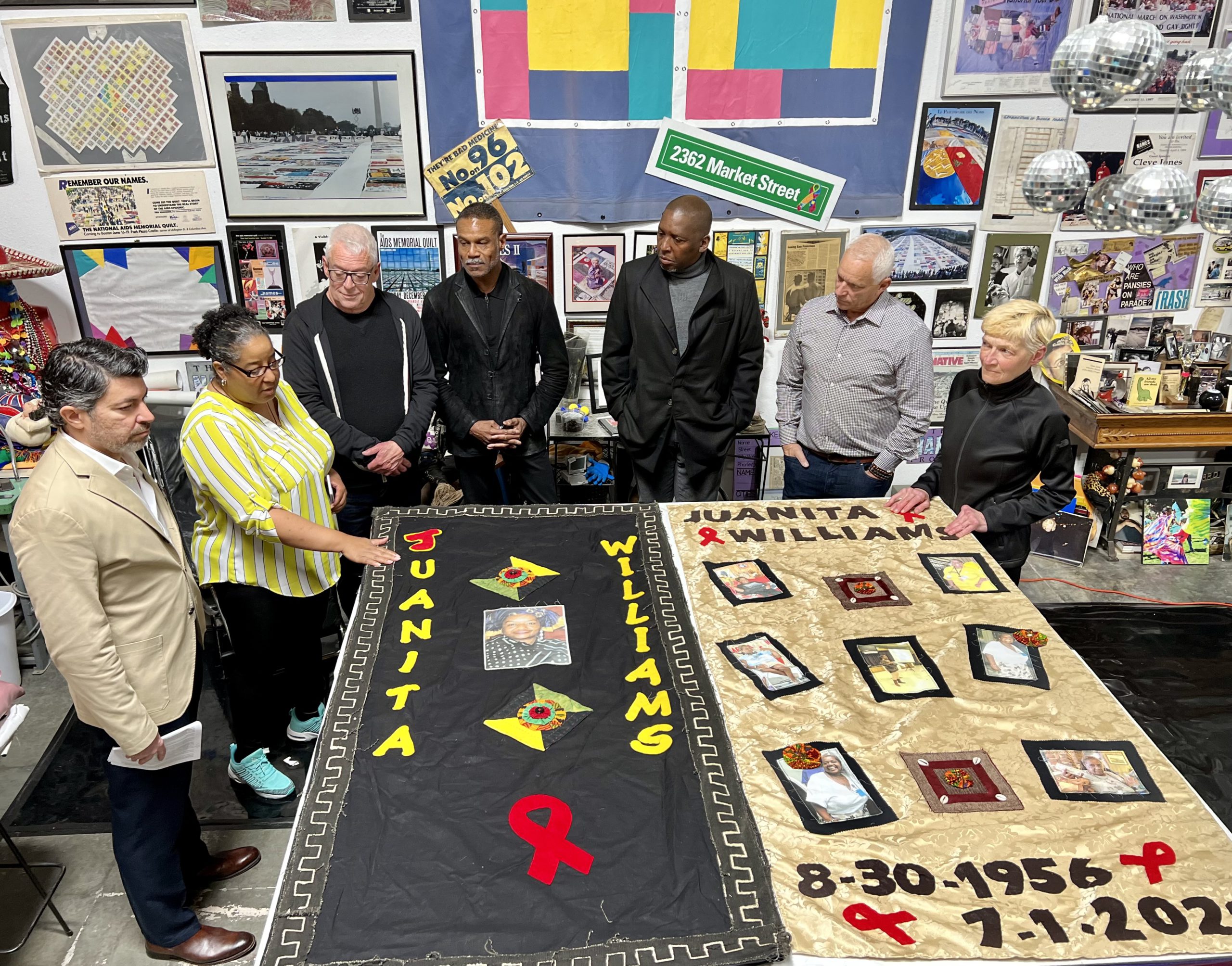
SAN FRANCISCO – The National AIDS Memorial will mark the 35th anniversary of the AIDS Memorial Quilt with an historic outdoor display in Golden Gate Park that will feature nearly 3,000 hand-stitched panels of the Quilt.
The free public event will take place on June 11 & 12 from 10 am – 5 pm each day in Robin Williams Meadow and in the National AIDS Memorial Grove. Expected to draw thousands of people, the display will be the largest display of the Quilt in over a decade and the largest-ever in San Francisco history.
“This year’s historic community display will be a beautiful celebration of life and a recognition of the power of the Quilt today as a teaching tool for health and social justice,” said National AIDS Memorial CEO John Cunningham. “The Quilt is an important reminder that the HIV/AIDS crisis is still not over and there is much work to be done, particularly in communities of color, where HIV is on the rise in many parts of the country.”
The two-day 35th Anniversary event, presented by Gilead Sciences, will feature 350 12’x12’ blocks of the Quilt laid out on the ground, each consisting of eight 3’x 6’ individually sewn panels that honor and remember the names and stories of loved ones lost to AIDS. Visitors will be able to walk through the display to experience each panel, remember the names, and see first-hand the stories sewn into each of them. Featured Quilt blocks will include many of the original panels made during the darkest days of the pandemic and panels made in recent years, a solemn reminder that the AIDS crisis is still not over.
“The Quilt remains an important symbol of hope, activism and remembrance that reaches millions of people each year, opening hearts and minds,” said Alex Kalomparis, Senior Vice President, Gilead Sciences, a long-time partner of the Quilt and its programs. The company provided a $2.4 million grant to the National AIDS Memorial in 2019 to relocate the Quilt from Atlanta back to San Francisco. “Through community displays such as this, the Quilt is connecting the story of HIV/AIDS to the issues faced by many people today, touching their lives in a very personal, compelling way.”
An opening ceremony and traditional Quilt unfolding will start at 9:30 am on the 11th, followed by the continuous reading of names of lives lost to AIDS aloud by volunteers, dignitaries, and the public on both days. There will be panel-making workshops, community information booths, stories behind the Quilt, displays of memorabilia, and the ability for the public to share their personal Quilt stories. Volunteer opportunities and community/corporate partnerships are available. The public is also invited to bring new panels that can be displayed in a special area to become part of the Quilt.
More than 100 new panels will be seen for the first time at the San Francisco display. Many of them were made through the Memorial’s Call My Name panel-making program, which helps raise greater awareness about the impact of HIV/AIDS in communities of color, particularly in the South, where HIV rates are on the rise today. Panel-making workshops are organized around the country, working with church groups, quilting guilds and AIDS service organizations to continue the Quilt’s 35-year legacy of bringing people together and to serve as a catalyst for education and action by pulling the thread from then to now for justice.
· Nearly 3,000 panels on 350 Quilt blocks to be displayed in Golden Gate Park on June 11 & 12 for a free public event expected to draw thousands to experience the largest community arts project in the world
· Panels on display will include those made during the darkest days of the pandemic and ones made today, a reminder that the fight for a cure is not over, with communities of color most impacted today
· Presented by Gilead Sciences, visitors will experience a national treasure that is a teaching tool today for health and social justice
“The AIDS Quilt has always been an important part of Glide Memorial Church and many Black churches around the country. Throughout the years, we have made panels and displayed them from the pulpit as a backdrop to worship, with parishioners calling, singing, and preaching their names,” said Marvin White, Minister of Celebration at Glide. “We are honored to be a community partner of this historic display, to celebrate their lives and to share their stories so future generations always remember.”
According to the latest Centers for Disease Control and Prevention data, while new HIV infections in the U.S. fell about 8% from 2015 to 2019, Black and Latino communities — particularly gay and bisexual men within those groups — continue to be disproportionately affected. In 2019, 26% of new HIV infections were among Black gay and bisexual men, 23% among Latino gay and bisexual men, and 45% among gay and bisexual men under the age of 35. African American and Hispanics/Latinos account for the largest increases in new HIV diagnoses, 42% and 27% respectively. Disparities also persist among women. Black women’s HIV infection rate is 11 times that of white women and four times that of Latina women. Racism, HIV stigma, homophobia, poverty, and barriers to health care continue to drive these disparities.
The first panels of the Quilt were created in June of 1987 when a group of strangers, led by gay rights activist Cleve Jones, gathered in a San Francisco storefront to document the lives they feared history would forget. This meeting of devoted friends, lovers and activists would serve as the foundation for The NAMES Project AIDS Memorial Quilt. Each panel made was the size of a human grave and they saw the Quilt as an activist tool to push the government into taking action to end the epidemic.
“What started as a protest to demand action turned into a national movement that served as a wake-up call to the nation that thousands upon thousands of people were dying,” said Jones. “Today, the Quilt is just as relevant and even more important, particularly in the wake of Covid-19, and the fact that the struggles we face today that result from health and social inequities are the issues we will face again in the future if we don’t learn from the lessons of the past.”
That year, the nearly 2,000 panels of the Quilt traveled to Washington, D.C. for its first display on the National Mall. It then traveled to several cities, including a large display at the Moscone Center in San Francisco to raise funds for AIDS service organizations.
Today, the Quilt, considered the largest community arts project in the world, is under the stewardship of the National AIDS Memorial and has surpassed 50,000 individually sewn panels with more than 110,000 names stitched into its 54 tons of fabric. The Quilt continues to connect the history of the AIDS pandemic to the ongoing fight against stigma and prejudice through hundreds of community displays around the country and educational programs that reach millions of people each year. In 2021, an outdoor Quilt display system was constructed in the National AIDS Memorial Grove, located in Golden Gate Park, which allows for regular outdoor displays.
“Golden Gate Park has long been a place where history is made and where people come together for change, to heal and express themselves,” said Phil Ginsburg, general manager of the San Francisco Recreation and Park Department. “The National AIDS Memorial is an important part of that history, and we are honored to be part of this event that will bring thousands of people to our beloved park to honor a national treasure.”
A special web page at www.aidsmemorial.org has been created for the public to plan their visit to see the display that will be updated regularly with the latest details and information about this historic event.
San Francisco
Fremont, California man convicted in Grindr robbery & assault
Silveria is currently in custody. He faces up to twelve years in state prison for his crimes. Sentencing is scheduled for May 22, 2024
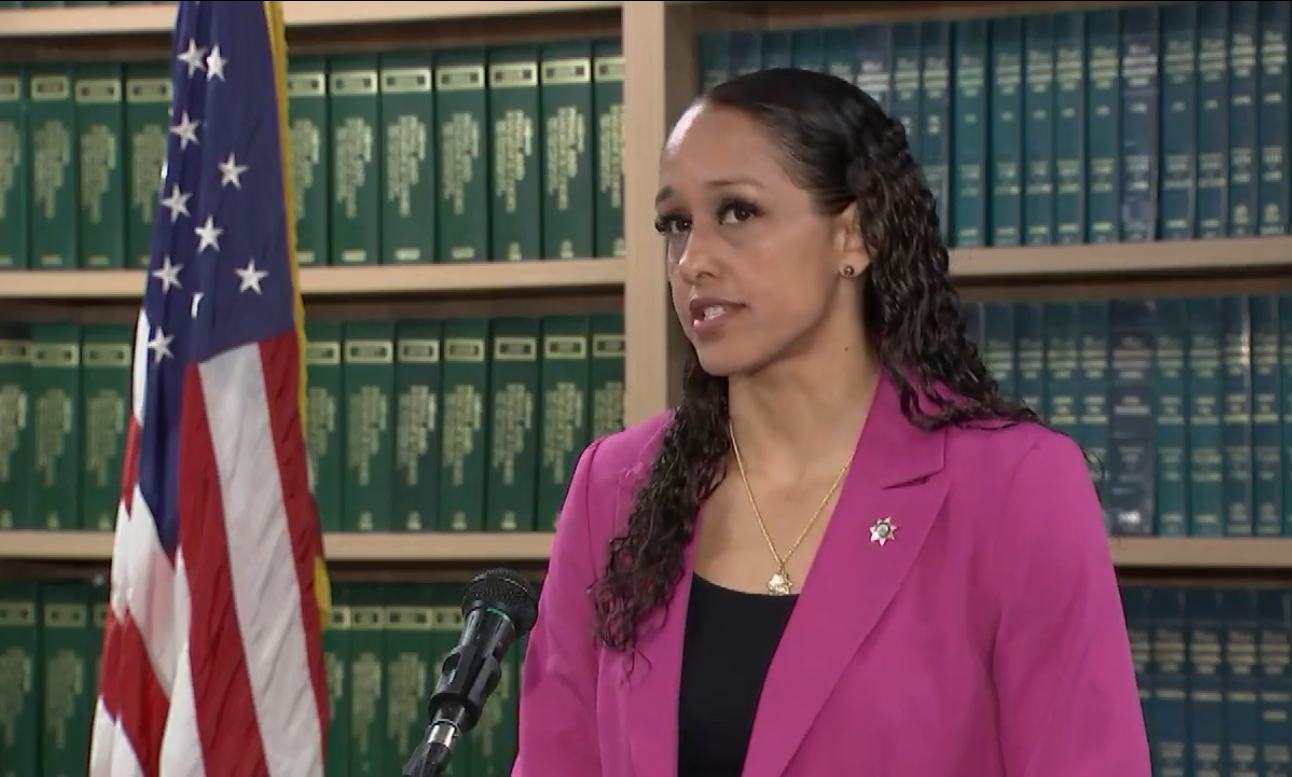
SAN FRANCISCO – San Francisco District Attorney Brooke Jenkins announced this week that her office secured a conviction of Ronald Anthony Silveria (27), of Fremont, after a trial by jury for attacking and stealing from a man he met on the Grindr application.
Silveria was convicted of first-degree robbery (PC 211), false imprisonment by violence or menace (PC 236/237(a)), identity theft (PC 530.5(a)), and misdemeanor assault (PC 240) and false imprisonment (PC 236).
“The jury’s verdict holds Mr. Silveria accountable for his despicable crimes,” said District Attorney Jenkins. “My office will always stand with victims of crime and work to ensure there are consequences for criminal behavior.”
According to evidence and other testimony presented at trial on September 15, 2022, Silveria met a man in Fremont through the Grindr app. They traveled in separate cars to a San Francisco motel where the victim had rented a room.
After hanging out in the room for a while, Silveria pulled out a gun and tied the victim, who was naked, to the bed. He then proceeded to go through the victim’s bags and electronics, hitting the victim and demanding passwords for bank apps. Silveria eventually agreed to release the victim if he withdrew $400 from an ATM and gave it to him.
The victim agreed and Silveria allowed him to dress, then forced him to wipe down the room, and get into his car to drive to a nearby ATM. After taking the $400, Silveria refused to return the victim’s car keys and belongings. Silveria then drove across the Bay Bridge and abandoned the victim in Emeryville, California at 4:30am. He drove off with all of victim’s belongings including his phone, iPad, and wallet.
The case against Silveria was successfully prosecuted by Assistant District Attorney Edward Mario, with assistance from District Attorney Investigator Mike Beaver, and paralegal Melissa Cruz. The case was successfully prosecuted based on the thorough investigation of the San Francisco Police Department’s Robbery Division and the ongoing participation from the victims.
“Mr. Silveria preyed on a man who was in a trusting, compromised, and vulnerable position,” said Assistant District Attorney Edward Mario. “I thank the victim for his bravery in testifying and re-living traumatic life events. This conviction ensures accountability for Mr. Silveria’s actions and provide a measure of justice for the victim.”
Silveria is currently in custody. He faces up to twelve years in state prison for his crimes. Sentencing is scheduled for May 22, 2024.
San Francisco
USNS Harvey Milk makes its maiden voyage to San Francisco
Naval officials, veterans, and local leaders welcomed the ship to the Port of San Francisco with a special arrival ceremony and celebration
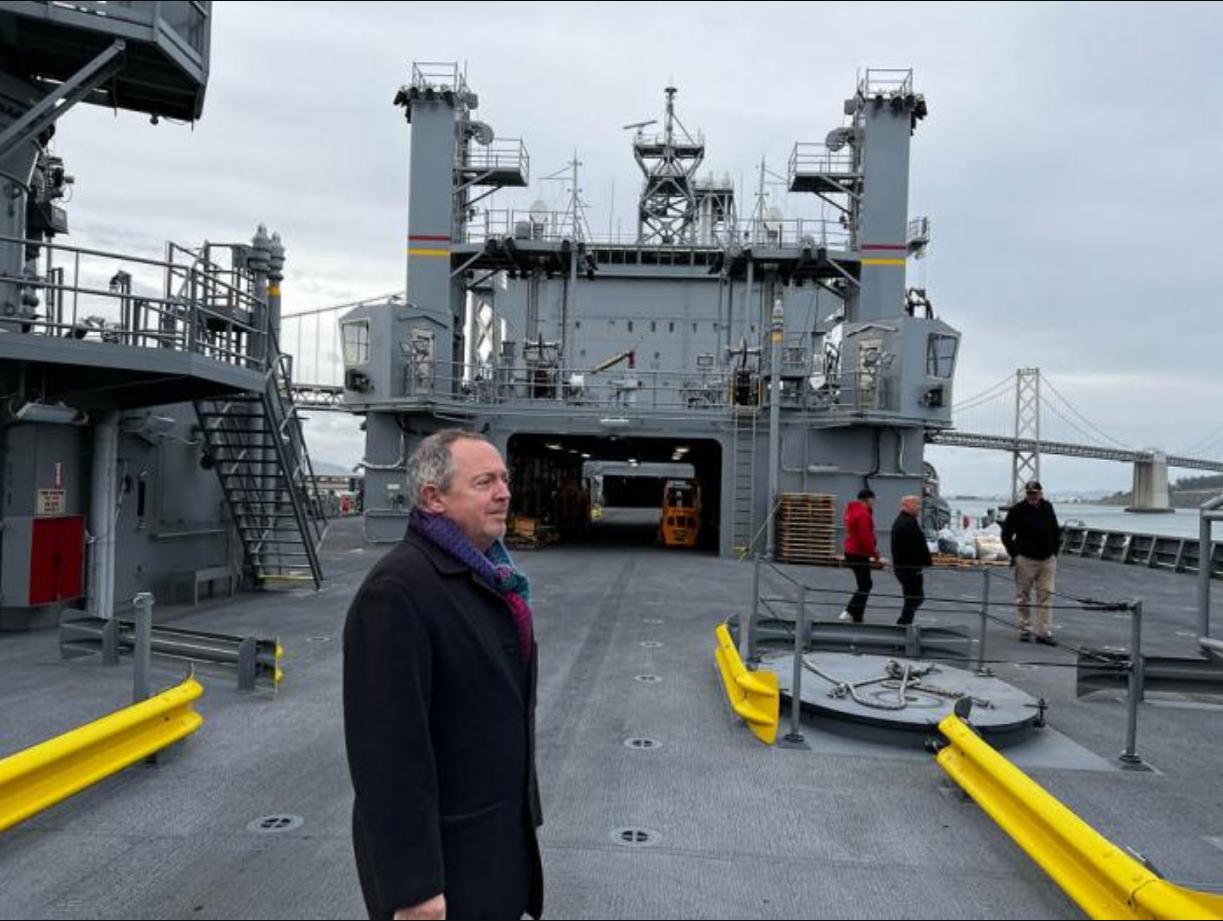
By Matthew S. Bajko, Assistant Editor | SAN FRANCISCO – The Navy’s USNS Harvey Milk (T-AO 206) made its maiden voyage Thursday through the Golden Gate and sailed into San Francisco Bay 28 months after being christened in the San Diego shipyard where it was built. It docked at Pier 30/32 at the Port of San Francisco and sets sail Saturday for its homeport in Norfolk, Virginia.
Helming a ship under the Golden Gate Bridge for the first time was Captain James J. White, who served in the Navy three years on active duty and has spent more than three decades as a Military Sealift Command civilian mariner. This is his first time back in the Bay Area since he came through Oakland during his time in the U.S. Merchant Marine Academy.
“It was very exciting. One of those once in a lifetime things,” said White about commanding a vessel under the iconic landmark. “The crew loved it.”
The all-civilian crew serving on the 746-foot vessel numbers 79 at the moment; it will number 99 when fully staffed. Throughout its interior are photos of Milk from various stages of his life, including his time in the Navy and later when he became a civil rights leader in San Francisco. The lone color photo shows Milk in his dress uniform with his mother.
“This is a great ship with a message of inclusion,” said White as he gave a private tour of it to half a dozen gay leaders Thursday evening.
Taking part was John Carrillo, a local hotel manager who is the 28th elected Emperor After Norton of the Imperial Court of San Francisco. The drag-based philanthropic group’s 70 chapters across North America had sent letters from its members and local officials in support of seeing the Navy name a ship after Milk.
“It’s really touching,” said Carrillo, who had seen the vessel several times while it was being built. “When I woke up Thursday, a friend had sent me a picture of it when it was out in the Golden Gate. It is so significant to have it here in San Francisco. This was Milk’s home.”
Milk was the first gay person elected to public office in California when he won a San Francisco supervisor seat in 1977. Tragically, a year later he and then-mayor George Moscone were assassinated in City Hall by disgruntled former supervisor Dan White.
Two decades prior, in 1951, Milk had enlisted in the Navy and attended Officer Candidate School in Newport, Rhode Island. By 1954 he was a lieutenant (junior grade) stationed at what was then called the Naval Air Missile Test Center in Ventura County in Southern California. Milk, a naval diving instructor, was on active duty during the Korean War aboard submarine rescue ship USS Kittiwake (ASR-13).
An LGBTQ San Diego advisory group in 2012 had first called for a naval ship to be named for Milk. Four years later the Navy agreed to name one of its fleet replenishment oilers after Milk. The official naming ceremony took place on Treasure Island in San Francisco in August 2016 with Ray Mabus, at the time secretary of the Navy, and Congressmember Nancy Pelosi (D-San Francisco), then the House minority leader.
It wouldn’t be until December 13, 2019 that the vessel’s first cut ceremony took place at the General Dynamics National Steel and Shipbuilding Company’s San Diego shipyard. Nearly two years later, in November 2021, naval officials, servicemembers, and LGBTQ community leaders witnessed the USNS Harvey Milk leave dry dock for the first time, as the Bay Area Reporter had reported at the time.
The ship left the Southern California city’s harbor last week, and gay San Diego city and county commissioner Nicole Murray Ramirez was able to tour it. Jack Nooren Films posted a short video of the visit to its YouTube page.
Significant turnaround
Murray Ramirez, who as the Queen Mother I of the Americas and Nicole the Great is the titular head of the international court, first thought of the ship-naming proposal after the repeal of the military’s homophobic “Don’t Ask, Don’t Tell” policy over a decade ago. The ship honor for Milk marked a significant turnaround from how he was treated by the military during his enlistment.
As the B.A.R. reported in February 2020, Milk was given an “other than honorable” discharge from the U.S. Navy and forced to resign on February 7, 1955 rather than face a court-martial because of his homosexuality, according to a trove of naval records obtained by the paper. It contradicted an archival document housed in the San Francisco Public Library’s San Francisco History Center that authors of several biographies of Milk had used to claim that Milk was honorably discharged from the Navy.
At the Milk ship’s christening ceremony Secretary of the Navy Carlos Del Toro had noted he wanted to be there in order “to amend the wrongs of the past” in terms of the harassment LGBTQ servicemembers had faced.
Touring the ship Thursday with its captain was former San Francisco supervisor Bevan Dufty, who served in what had been Milk’s board seat. Years ago Dufty had been one of the few individuals invited to take a sneak peak tour of the ship while it was being constructed in San Diego.
Seeing it docked along San Francisco’s waterfront near the support pillars for the San Francisco—Oakland Bay Bridge was a bit overwhelming, said Dufty.
“It’s beautiful that it is here,” said Dufty, board president for regional transit agency BART. “This being the first Navy ship being named after someone who wasn’t honorably discharged, it’s poetic.”
Witnessing its arrival as it sailed past Alcatraz Island, a onetime military prison turned national park, was Milk’s gay nephew Stuart Milk. He and his family now run a foundation to carry on the legacy of their famous relative.
“It has been a long trajectory,” noted Stuart Milk to the B.A.R. as he stopped by to see the ship docked Thursday evening.
Sometime in 2025 the Milk oiler will be sent overseas to refuel and restock other Navy ships. Stuart Milk is looking forward to the day when it sails into the territorial waters of countries where LGBTQ rights are either under attack or the LGBTQ community has no legal protections.
“I think it is important that here is a ship named after someone forced out of the military because they were gay and now this ship will go to parts of the Atlantic like the Baltic region and the Red Sea and the ports of a lot of countries where LGBTQ people are not accepted,” said Milk. “This sends the message that things can change.”
Ship welcomed to SF
Naval officials, veterans, and local leaders welcomed the ship to the Port of San Francisco with a special arrival ceremony and celebration of its namesake March 29. A special National Vietnam War Veterans Day awards presentation for local veterans was also held in conjunction with the arrival of the Milk ship, as March 29 is annually observed as National Vietnam Veterans Day.
The United States of America Vietnam War Commemoration and Rear Admiral Richard W. Meyer of the U.S. Third Fleet presented official lapel pins to roughly 50 Bay Area Vietnam War veterans. Due to inclement weather, there was a closed media event on board the USNS Harvey Milk. The veterans event honoring those who served during the Vietnam War was moved to the Port of San Francisco building at Pier 1.
Lewis Loeven, the executive director of the San Francisco Fleet Week Association since 2010, has watched the progression of the Milk ship from its inception. A straight ally who grew up in a U.S. Marine family on Long Island, Loeven has repeatedly pressed naval officials on when the Milk ship would come to San Francisco.
He had once again asked Del Toro about it in February when they were both at an event in Miami. Three weeks later Loeven received word it would arrive to town on March 28.
“It was important for me to have the ship come in and show the San Francisco community and Harvey Milk’s community that the Navy cares and they honor his legacy,” Loeven told the B.A.R. as he saw the ship docked on Thursday.
Coordinating a crew from the local CBS affiliate KPIX-5, which had livestreamed the Milk ship’s arrival and was interviewing Stuart Milk where it had docked, was Brian O’Rourke, the media relations officer for the Navy Region Southwest. A gay man who grew up in Philadelphia and enlisted in the Navy in 1983 to see the world, O’Rourke was stationed in San Diego a year later and has spent his career with the Navy over the last 41 years in various roles.
He lives and works in San Diego, and could see the Milk ship from his office window. Having served before and during the DADT period in the military, O’Rourke told the B.A.R. to now have a naval ship named after an LGBTQ icon personally means a lot. It is another example of how quickly the military adjusted to having LGBTQ people serving openly, he noted.
“There was a lot of arguments about unit cohesiveness and the troops would never accept us. The reality was when DADT went away, it changed overnight. There was no long process to adjust to it,” said O’Rourke, who retired from active duty in the Navy in 2005. “It just happened and everybody was fine. The next year Navy ships were holding Pride events.”
The Milk replenishment oiler is one of four posthumously honoring civil rights leaders, with the first named after Georgia congressmember John Lewis. The others’ namesakes are U.S. attorney general Robert Kennedy and U.S. Supreme Court chief justice and California governor Earl Warren.
All four are part of the Military Sealift Command. The oilers can each carry 162,000 barrels of diesel ship fuel, aviation fuel, and dry stores cargo.
**************************************************************************************
The preceding article was previously published by the Bay Area Reporter and is republished with permission.
Help keep the Bay Area Reporter going in these tough times. To support local, independent, LGBTQ journalism, consider becoming a BAR member.
Never miss a story! Keep up to date on the latest news, arts, politics, entertainment, and nightlife. Sign up for the Bay Area Reporter’s free weekday email newsletter. You’ll receive our newsletters and special offers from our community partners.
San Francisco
13th annual Bay Area First Nations Two Spirit Society powwow
The Bay Area American Indian Two-Spirit powwow was held at San Francisco’s Fort Mason Center from February 5 to February 10, 2024
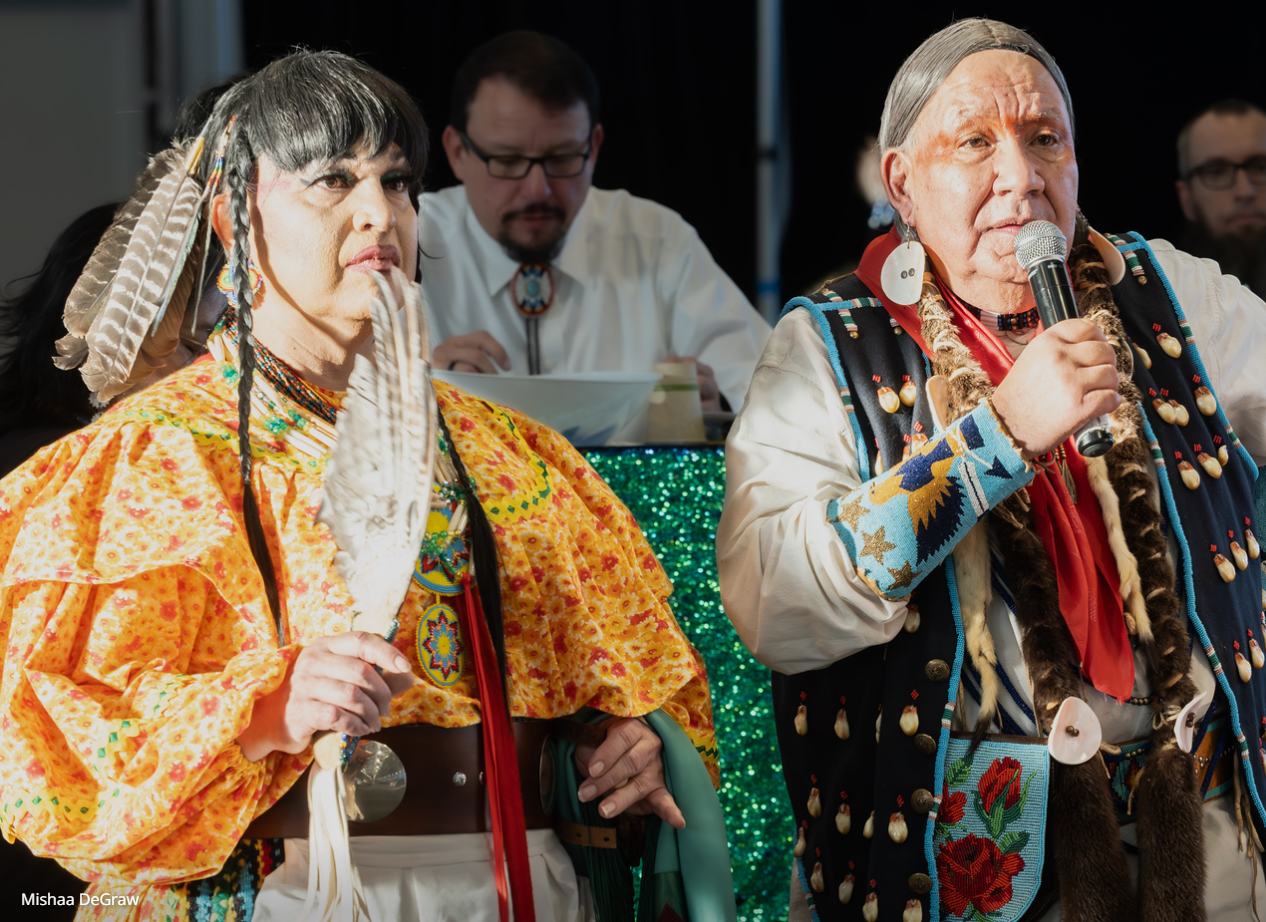
SAN FRANCISCO – The Bay Area American Indian Two Spirit Society held their 13th annual powwow on February 10th 2024, Commemorating the Bay Area American Indian Two-Spirits 25th Year Anniversary.
The 13th Annual Bay Area American Indian Two-Spirit powwow, held at San Francisco’s Fort Mason Center. (BAAITS) exists to restore and recover the role of Two-Spirit people within the American Indian/First Nations community by creating a forum for the spiritual, cultural and artistic expression of Two-Spirit people.
For the past 25 years, Bay Area American Indian Two-Spirits (BAAITS) has been creating sober gathering spaces and events for the Two-Spirit & IndigeQueer community in the Bay Area and beyond. Originally founded in 1999 by Two Spirit community members organizing the International Two Spirit Gathering in the Bay Area, BAAITS proudly continues to grow and expand to welcome Two-Spirits, IndigeQueer, and TG/GNC LGBQIA+ people as they/we learn and reconnect with their/our Indigenous roots.
BAAITS was excited to continue this legacy with a successful week of events from February 5, 2024 to February 10, 2024 culminating with the 13th Annual BAAITS Two-Spirit powwow.
BAAITS is a community-based volunteer organization offering culturally relevant activities for Gay, Lesbian, Bisexual, Transgender and Intersex Native Americans, their families and friends. Two-Spirit refers to the commonly shared notion among many Native American tribes that some individuals naturally possessed and manifested both a masculine and feminine spiritual qualities. American society commonly identifies Two-Spirit People as Gay, Lesbian, Bisexual or Transgender.
Bay Area American Indian Two-Spirits comes together to socialize, share and network in an alcohol and drug-free environment. BAAITS sees itself as an organization for Two-Spirit people to explore their rich heritage in a safe environment. To that end, BAAITS is committed to offering culturally relevant activities for LGBTQ individuals of Native American ancestry and their families and friends.
Photos:
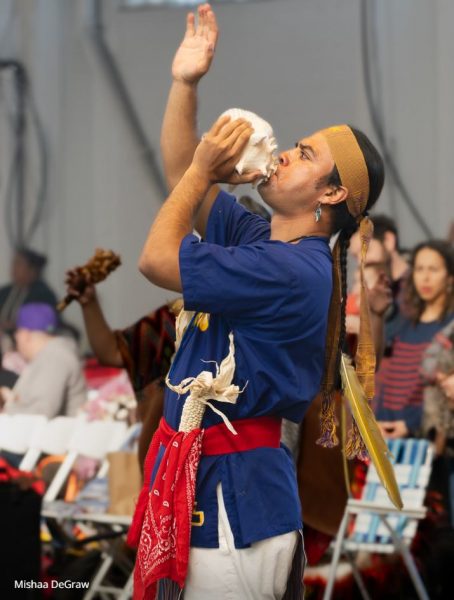
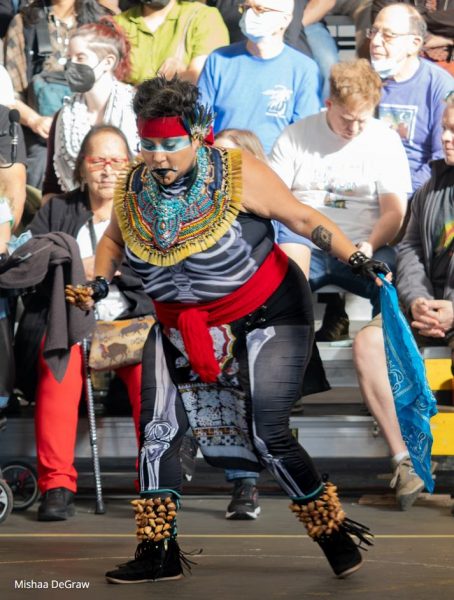
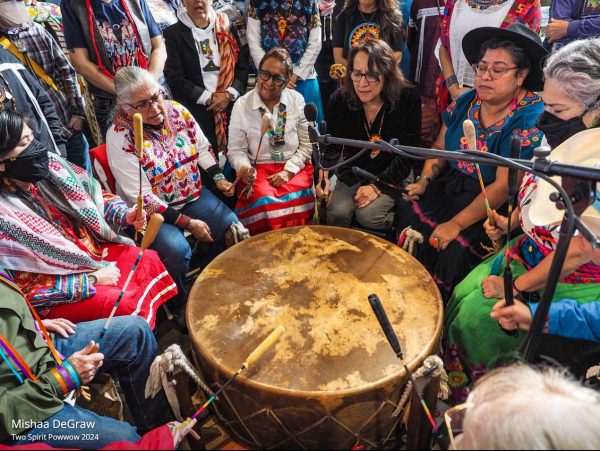
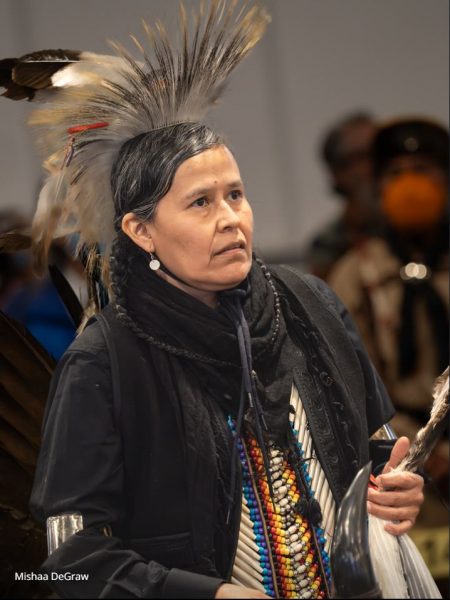
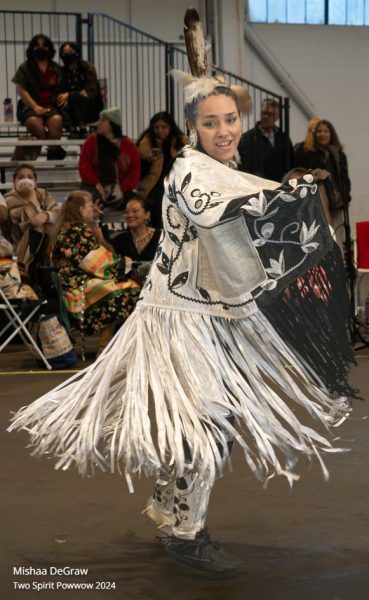
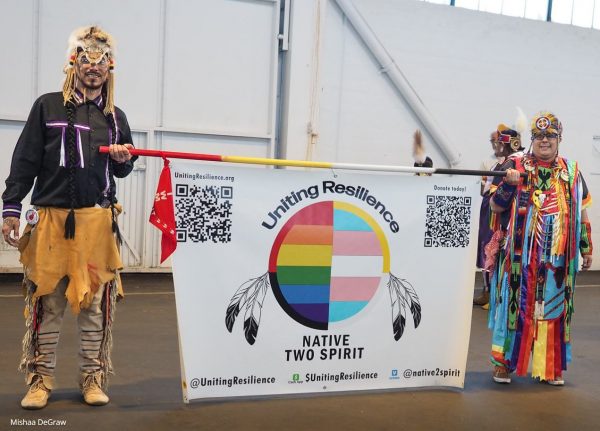
San Francisco
San Francisco’s trans pilot income program sued again
The suit is seeking a judge to issue an injunction permanently prohibiting Defendants from causing the expenditure of taxpayer funds
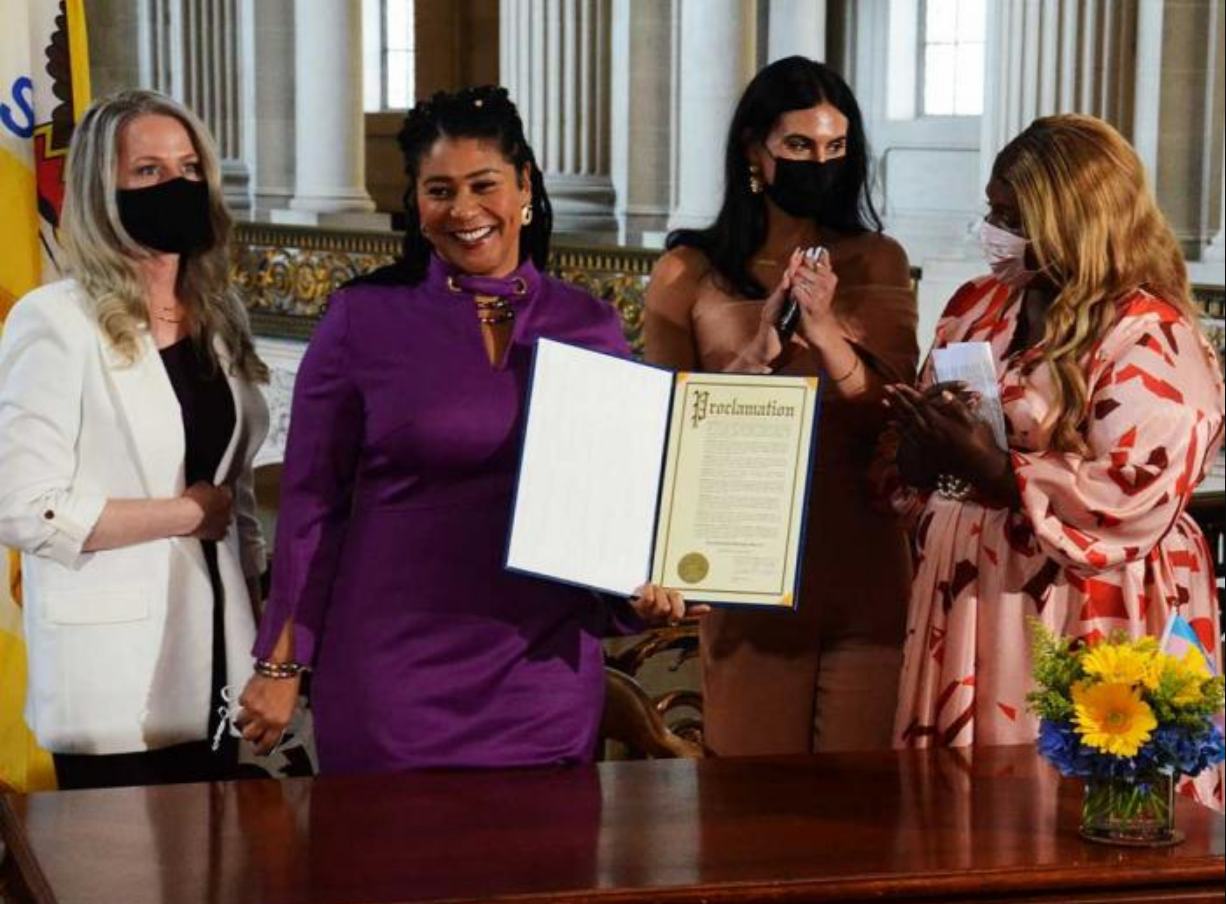

By John Ferrannini, Assistant Editor | SAN FRANCISCO – A second conservative group has filed a lawsuit against the City and County of San Francisco due to a program that seeks to provide guaranteed income to some transgender people.
As the Bay Area Reporter previously reported, a lawsuit last year from the Californians for Equal Rights Foundation alleged that the pilot Guaranteed Income for Trans People, or GIFT, is among several that violate federal anti-discrimination laws, including the 14th Amendment to the United States Constitution and the Civil Rights Act of 1964, the latter of which the U.S. Supreme Court applied to gender identity and sexual orientation in its 2020 ruling in Bostock v. Clayton County.
That first suit — joined by Republican former mayoral candidate Ellen Lee Zhou, among others — also targeted programs that help artists, pregnant women, and Blacks.
The new suit, filed by attorneys from Judicial Watch, is solely directed at the GIFT program.
Court records show it was filed in San Francisco Superior Court January 29. Jen Kwart, communications director for City Attorney David Chiu, stated to the Bay Area Reporter on January 31, “Once we are served with the lawsuit, we will review the complaint and respond in court.”
Judicial Watch did not return a request for comment. However, in a news release Judicial Watch President Tom Fitton stated, “The transgender extremists running San Francisco are illegally using taxpayer money to hand out free cash to transgender individuals based on race and sex in blatant violation of the state’s constitution.”
Complaint
Judicial Watch — a conservative legal activist group known for filing Freedom of Information Act requests against government officials — filed the civil complaint on behalf of three San Francisco residents: Michael Phillips, Paul Wildes, and Reed Sandberg. The named defendants are Mayor London Breed, gay City Treasurer José Cisneros, City Administrator Carmen Chu and John Doe.
“Defendant John Doe is the Executive Director of San Francisco’s Office of Transgender Initiatives (“OTI”), a component of the Office of the City Administrator of the City and County of San Francisco, and oversees OTI,” the complaint states. “The former Executive Director Paul Crego left the position on December 15, 2023, and, on information and belief, a search process for the next Executive Director is underway. Defendant Doe is being sued in his official capacity.”
Crego was hesitant to talk to a reporter about the program before his December departure, as the B.A.R. previously reported.
He’d said at first that “the extra publicity has caused more threats to our organization,” but went on to say there are 55 people in the program who are receiving $1,200 a month for 18 months.
The program is in its second year and ends in August. It was established in November 2022.
At the time, Breed stated, “We know that our trans communities experience much higher rates of poverty and discrimination, so this program will target support to lift individuals in this community up. We will keep building on programs like this to provide those in the greatest need with the financial resources and services to help them thrive.”
The low-income transgender San Franciscans selected were to receive $1,200 per month, for up to 18 months, on reloadable cards.
Whereas the first suit found legal justification from the federal Constitution, the second suit uses the state constitution — specifically Article I, section No. 7 (which ensures equal protection of the laws). The suit alleges this is violated in three ways: on the basis of gender identity, on the basis of sex, and on the basis of race and ethnicity.
“Plaintiffs contend that any expenditure of taxpayer funds or taxpayer financed resources on the GIFT program is illegal under Article 1, section 7 of the California
Constitution because the requirement that eligible participants be transgender, nonbinary, gender-nonconforming, or intersex is immediately suspect and presumptively invalid and cannot survive strict scrutiny review,” the complaint states. “Plaintiffs are being and will be irreparably harmed by Defendants’ illegal expenditure of taxpayer funds and taxpayer-financed resources on the GIFT program, unless and until Defendants’ illegal expenditures are enjoined.”
The suit alleges that the program discriminates against applicants on the basis of race. The complaint states that “the program grants preferential treatment to persons who identify as Black or Latino.” The basis of this cause of action was a Judicial Watch California Public Records Act (CPRA) request, which unearthed a 2022 document stating that “the program will prioritize enrollment and retention of BIPOC [Black, Indigenous People of Color] trans and nonbinary people who also engage in survival sex trades, living with disabilities, elders, living with HIV/AIDS, undocumented, monolingual Spanish speakers, formerly incarcerated, and unhoused and marginally housed.”
The suit is seeking a judge to issue “an injunction permanently prohibiting Defendants from expending or causing the expenditure of taxpayer funds and taxpayer-financed resources on the GIFT program,” and “a judgment declaring any and all expenditures of taxpayer funds and taxpayer-financed resources on the GIFT program to be illegal,” the complaint states, as well as attorneys’ fees.
The preceding article was previously published by the Bay Area Reporter and is republished with permission.
San Francisco
Memorial for Dianne Feinstein at San Francisco City Hall
U.S. Senator Dianne Feinstein was remembered at a memorial service on the plaza at San Francisco City Hall on Thursday
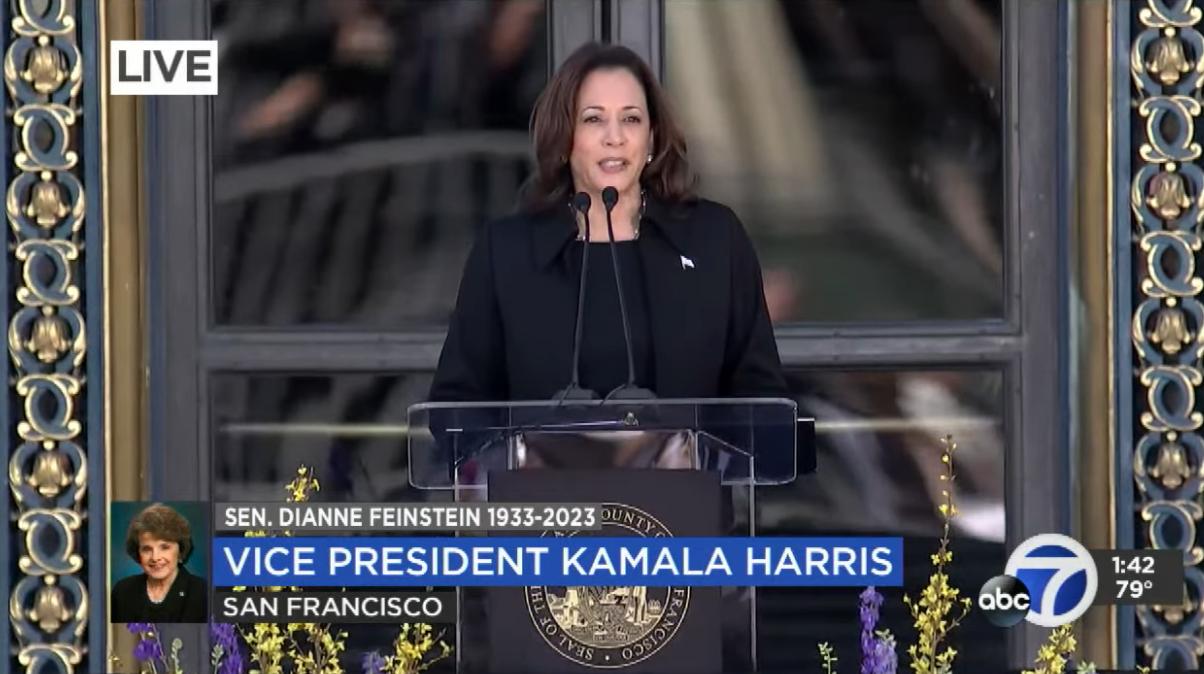
SAN FRANCISCO, Calif. – The memorial service for the late California U.S. Senator Dianne Feinstein was held on the plaza front of San Francisco City Hall on Thursday afternoon. Speakers included Mayor London Breed, Governor Gavin Newsom, Vice President Kamala Harris, and U. S. Senate Majority Leader Chuck Schumer.
San Francisco
San Francisco bids farewell to trailblazing Senator Dianne Feinstein
“While Feinstein had a complicated relationship with LGBTQs over the years, we recognize her commitment to the community”
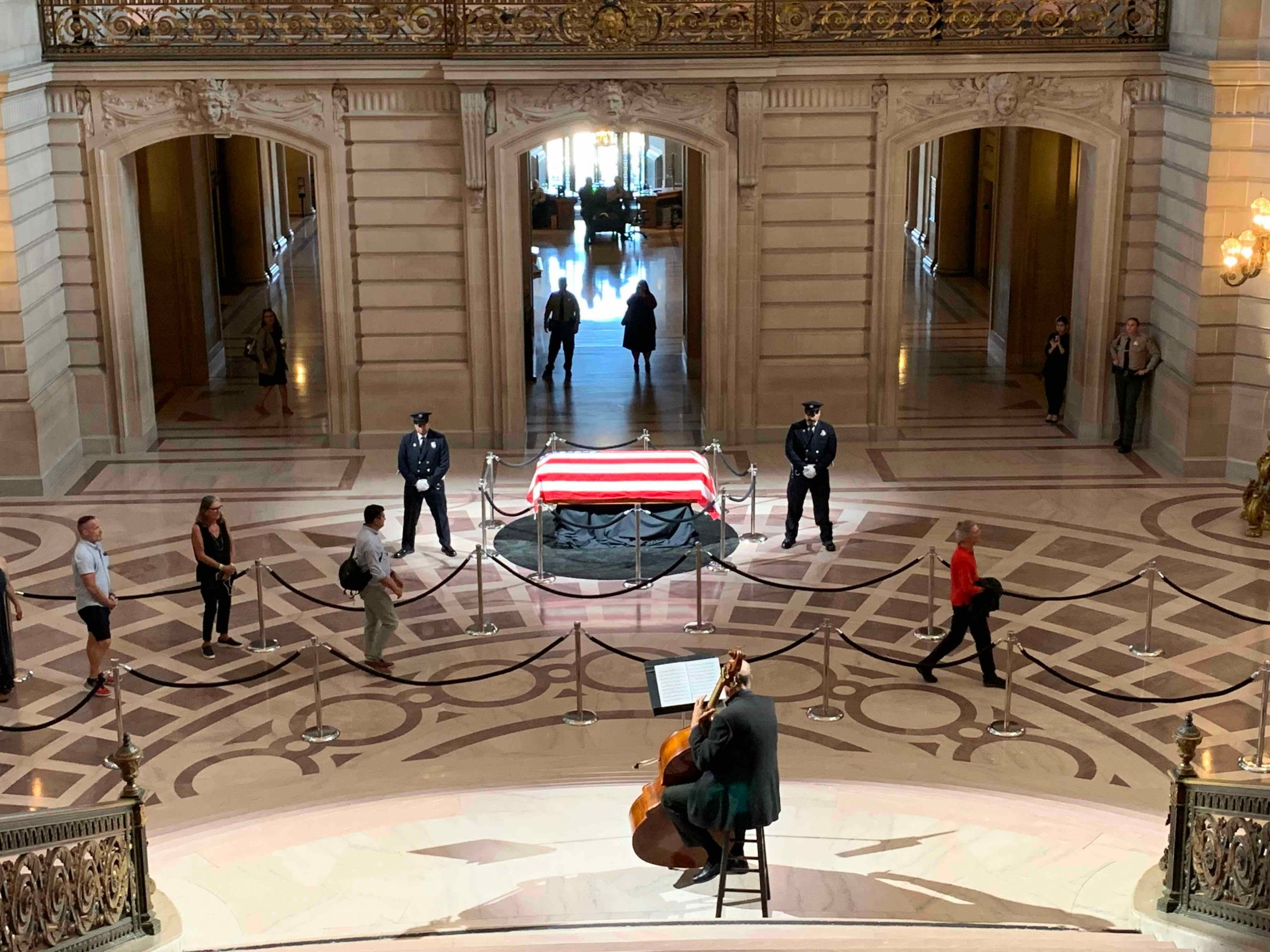
SAN FRANCISCO, Calif. – Thousands passed by throughout the day on Wednesday in the imposing marble rotunda of the City Hall to pay respects to a trailblazing woman politician whose career had begun in this very building fifty-four years ago.
Lying in state where other famous San Franciscans have prior, most notably the two men whose political assassinations in this building on the next floor up on November 27, 1978 catapulted her into national prominence, Supervisor Harvey Milk and Mayor George Moscone, U.S. Senator Dianne Feinstein (D-California), who died last week at the age of 90, was remembered by the great, the good, the poor, the rich, the politicos and the ordinary people who call the City by the Bay home.
Among those seen in quiet contemplation at her casket was U.S. House Speaker Emerita Nancy Pelosi with her husband Paul, Dr. Anthony Fauci, California State Senator Scott Wiener, and San Francisco Mayor London Breed.
Senator Feinstein is lying in state at the place where it all started — San Francisco City Hall. It’s still hard to process that this absolute giant of San Francisco and national politics is no longer with us. Rest in peace, Senator. pic.twitter.com/VCYKcD42Ua
— Senator Scott Wiener (@Scott_Wiener) October 4, 2023
Dr. Anthony Fauci arrives to pay his respects to the late Senator Dianne Feinstein as she lies in state in the Rotunda of San Francisco City Hall @sfchronicle pic.twitter.com/cg4E9sMqBo
— Jessica Christian (@jachristian) October 4, 2023
Feinstein had a complicated relationship with the LGBTQ+ community. Longtime LGBTQ+ journalist and former Los Angeles Blade news editor Karen Ocamb noted in a commentary published on her personal Facebook page a few days after the Senator’s death:
The forgotten story I want to share happened in 1990 when Feinstein was running for governor against moderate Republican Sen. Pete Wilson of San Diego. Wilson told Log Cabin Republicans behind closed doors that he would sign the long-fought-for gay rights bill, AB 101. That promise quickly caught fire and moved some gays from the Feinstein to Wilson column.
It wasn’t just that Feinstein would not commit to signing AB 101 – it was that she was publicly silent on LGBTQ rights at the height of the Second Wave of AIDS, where she could actually take some credit for leadership as SF Mayor. Meanwhile, Harvey Gantt, the engaging Black Democratic mayor of Charlotte, North Carolina, was in LA raising money for his close battle to dethrone ultra racist homophobe Sen. Jesse Helms. Everywhere he went, including private fundraisers, Gantt talked about gay rights – unprompted.
That was just too much for lesbian attorney Diane Abbitt, first woman co-chair of MECLA, leader against the Briggs Initiative, board co-chair for APLA and close friend of David Mixner, with whom Abbitt and a slew of other LGBT politicos subsequently founded ANGLE. At a private reelection fundraiser for San Fransisco DA Arlo Smith, Diane got up on some stage – I seem to remember it as a huge boulder – and just fumed about how she was sick and tired of raising money for politicians who quietly gestured that they were allies but never said the words “gay and lesbian.”
We were outdoors and everyone – even the breeze – just stopped in shock. Diane had that kind of intensity that could zap you with a look. But apparently few had seen her this enraged. She didn’t just hit a nerve; she inflamed the marrow in our bones.
I wrote about that political epiphany for Frontiers and for other gay press outlets under a pseudonyme. But the word spread beyond us and even though Feinstein brought lesbian icons Del Martin and Phyllis Lyons with her to events – the “gay vote” that first showed up to defeat the Briggs Initiative in 1978 started dropping away from Feinstein. She suffered a terrible loss to Wilson, though only the gay press pointed to our community as one reason why.
Gov. Wilson went on to betray us, vetoing AB 101 on this day, Sept. 30, 1991. That led to weeks of riots – also now forgotten.”
The Editorial Board of the oldest LGBTQ publication in California, San Francisco’s The Bay Area Reporter, also took measure of Sen. Feinstein and her career:
U.S. Senator Dianne Feinstein (D-California), who died last week at the age of 90, will be remembered for a lot of things, but to many older LGBTQ people, she is recalled as the steadfast leader who worked to heal San Francisco following a tragedy that propelled her into the national spotlight. It was November 27, 1978, when Feinstein, then president of the San Francisco Board of Supervisors, standing inside City Hall announced to the world that then-mayor George Moscone and gay supervisor Harvey Milk had been shot and killed by disgruntled ex-supervisor Dan White.
Watching that old TV footage, which was replayed in the hours after her death was announced, brought back a flood of memories for so many. We couldn’t believe that both city leaders had been assassinated. Moscone was a progressive leader and Milk, of course, made history when he was elected just a year earlier, becoming the first out LGBTQ person to win elected office in California. He only served for 11 short months.
As board president, Feinstein became mayor — the first woman to lead San Francisco — and went on to serve in that capacity for a decade, easily surviving a recall and winning reelection during that time. Her leadership occurred during the worst of the AIDS crisis, and Feinstein allocated millions of dollars to help stop the spread of the disease.
As gay former KPIX-TV reporter Hank Plante noted in a social media post, Feinstein’s AIDS budget was more than then-President Ronald Reagan’s was for the entire United States. The “San Francisco Model” was born during her administration, as nonprofits sprang up to work with people living with AIDS and health officials in a partnership that endures today.
She did face criticism for city health leaders’ decision to close the gay bathhouses, but relied in part on their expertise at a time when thousands of gay men were dying of a disease that had virtually no treatment.
(Photo Credit: San Francisco Chronicle/pool)
As mayor, Feinstein appointed LGBTQ people to city boards and commissions, and hosted the wedding of one of them, the late Jo Daly, the first lesbian to serve on the Police Commission, in her garden.
She appointed Harry Britt, a gay man, to replace Milk on the Board of Supervisors. Her veto of Britt’s domestic partner legislation caused a rift in her support from the LGBTQ community and was one of the reasons for the 1983 recall. The city later passed a domestic partner ordinance, and of course, jump-started the marriage equality movement in 2004 when then-mayor Gavin Newsom ordered city officials to issue marriage licenses to same-sex couples. That exposed another split with the LGBTQ community, when Feinstein, then a U.S. senator, said Newsom’s actions were “too much, too fast, too soon.”
But Feinstein remained an ally to the community when she won election to the Senate in 1992. Most significantly, she was one of only a few senators who voted against the hideous Defense of Marriage Act that for decades banned federal recognition of same-sex marriage. Even Joe Biden, then a U.S. senator from Delaware, voted for DOMA at the time.
Feinstein also voted against the homophobic “Don’t Ask, Don’t Tell” policy that prevented gays and lesbians from serving openly in the military. Both of those laws have since been repealed.
While Feinstein had a complicated relationship with LGBTQs over the years, we recognize her commitment to the community. Allies such as Feinstein are rarely perfect, yet, especially back in the 1990s, it often took some degree of courage for a mainstream political leader to stand with us.
It was a different time. Feinstein’s actions in support of the community led to support from other political leaders over the years, as they evolved in their thinking. Ultimately, she served the city and state well and will be missed.
Related:
“I know what happened, I lived those times- and I’ve tried to learn from them.” ~ Diane Feinstein
San Francisco
LGBTQ+ journalists assoc. honor sports editor Christina Kahrl
Out Trans San Francisco Chronicle sports editor to receive 2023 Jeanne Córdova Award. She is the 1st out trans sports writer in the nation
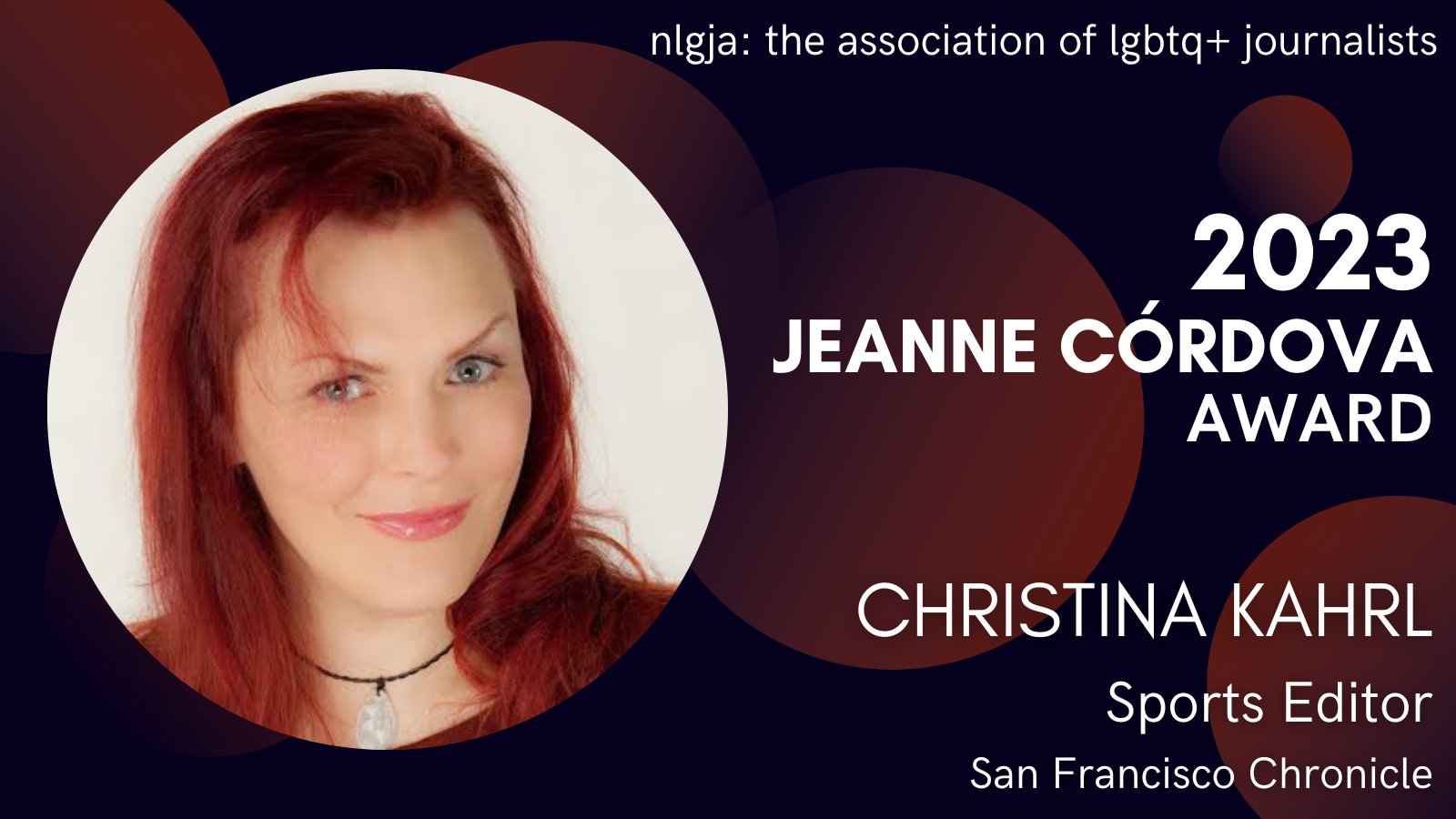
PHILADELPHIA — The NLGJA: The Association of LGBTQ+ Journalists announced Wednesday its recipient of the prized Jeanne Córdova Award at its convention here next month will be Christina Kahrl, the trailblazing sports editor of the San Francisco Chronicle.
It’s especially significant that this honor, which recognizes LGBTQ+ women in the media, will for the first time be awarded to an out transgender woman journalist, who as of this month has been Out 20 years.
“This is an extraordinary honor, knowing the impact Jeanne Córdova had in life and to this day,” Kahrl posted on social media. “Accepting it is not a case of looking back on my career with satisfaction, but a challenge to be worthy of it in everything I have yet to do.
Córdova was a journalist and the editor and publisher of Lesbian Tide, which chronicled the 1970s lesbian feminist movement. The award named for her celebrates the achievement of an LGBTQ+ woman for a current body of work in journalism and/or opinion, with an emphasis on, but not exclusively coverage of, issues of importance to the LGBTQ+ community, in any medium and on any platform.
Kahrl is the first out trans editor at a major metropolitan media outlet, and a sports journalism superstar. The Chronicle hired her away from ESPN in 2021 after a decade-long career as a sportswriter and editor, highlighted by being inducted into the National Gay & Lesbian Sports Hall of Fame in 2013 and the Chicago LGBT Hall of Fame in 2014.
In 2008, the Baseball Writers’ Association of America welcomed her as one of the first four internet-based writers to join the organization, as well as its first out trans member. The association votes each year on which players should be named to the National Baseball Hall of Fame in Cooperstown, N.Y.
And Kahrl did all of this as the woman she is, the first out transgender sports writer in the nation.
“I started coming out to friends and family and began my transition in 2002,” Kahrl told the Los Angeles Blade. “I was out publicly by August 2003,” she said.
“At that point, nobody had tried to pursue a career as a sportswriter while also being trans,” Kahrl wrote for a magazine published by her alma mater, University of Chicago, in 2015. “Unlike sexuality, this wasn’t something that could remain my own business: I had done a lot of TV work, particularly Cubs and White Sox postgame shows on CLTV, and a national book tour every spring for the new Baseball Prospectus annual. Folks were going to notice.”
Readers of The Chronicle have certainly noticed her talent in her brief time as one of the few women named to run the sports section of a major daily newspaper. The paper has already received multiple nominations and awards for its sports columnists, investigative reporting, breaking sports news as well as for its digital coverage of the Giants, A’s, 49ers and more.
While Kahrl has written for some other illustrious news brands including the Washington Blade, Sports Illustrated, Slate, Cosmopolitan and Playboy, she launched her sportswriting career in 1996, when she co-founded the baseball analytics bible, Baseball Prospectus, devoted to the statistical analysis of baseball. The organization has pioneered several statistical tools that have become hallmarks of modern baseball analysis.
Her roles at Baseball Prospectus grew from columnist to executive editor and managing editor of its bestselling annual season guide. In addition, Kahrl helped launch the careers of a number of baseball journalists as well as two general managers in Major League Baseball.
She was also the acquisitions editor for Brassey’s Sports, focusing on sports analytics and history in baseball, pro football, basketball, motor sports, golf and tennis.
Outside sports journalism, Kahrl has worked as an advocate for civic equality for transgender Americans, helping to reform Chicago police policy on trans individuals and training police departments throughout the Midwest in cooperation with the Department of Justice. She helped organize the public observation of Transgender Day of Remembrance in Chicago and received the Pride Community Service Award from Cook County in 2015 for her work as an activist for the Chicago transgender community. Kahrl has served on the boards of Equality Illinois, Illinois Gender Advocates and GLAAD, and is a Lifetime Member and former National Board director of NLGJA: The Association of LGBTQ+ Journalists.
“We are thrilled to honor Christina Kahrl with the Jeanne Córdova Award for her outstanding contributions to journalism,” said the organization’s executive director, Adam Pawlus, in a statement. “Her pioneering spirit has been instrumental in making the world of sports journalism more inclusive of LGBTQ+ voices and perspectives, and the industry is better for it.”
San Francisco
San Francisco drag artist Stefan Grygelko, aka Heklina, dies
“Heklina created events and community spaces that spun glitter and giant wigs and raucous jokes into a feeling of home”
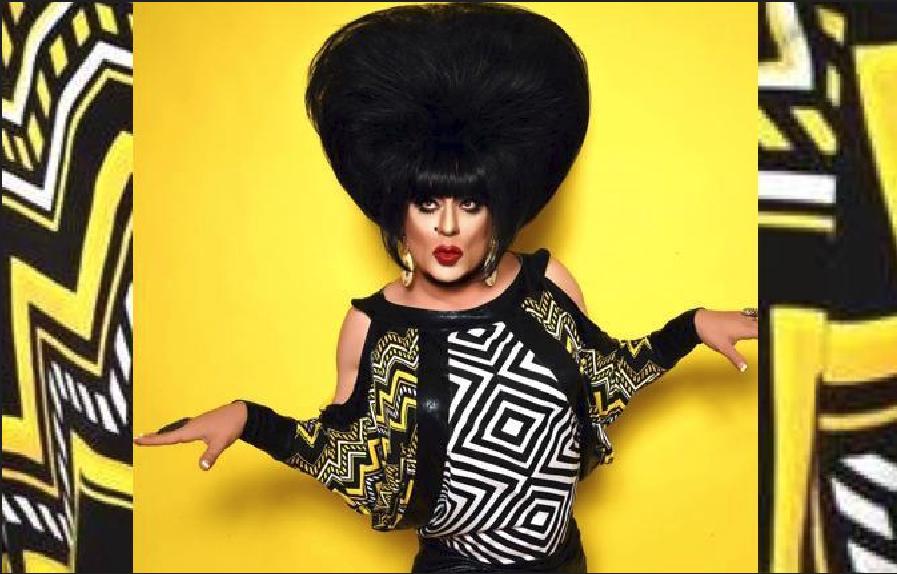

By Cynthia Laird | LONDON – Stefan Grygelko, better known as his drag persona Heklina, has died, his longtime friend Joshua Grannell (Peaches Christ) wrote on Facebook April 3.
The two were in London where they were appearing in the “Mommie Queerest” show there, Grannell wrote, adding that he had gone to pick up Heklina that day.
“I do not know the cause of death yet,” Grannell wrote. “I know this is shocking news and I am beyond stunned, but I wanted to let folks know what has happened. Heklina is not just my best friend, but a beloved icon of our community.”
The news shocked and saddened his friends back in San Francisco, with fellow drag queen Sister Roma writing on their Twitter account that she was “absolutely devastated” to learn of the passing of his friend and collaborator for two-plus decades.
“She is one of the funniest people I’ve ever known. This is a nightmare,” wrote Roma, a member of the drag philanthropy group the Sisters of Perpetual Indulgence, in a tweet.
Oasis, the LGBTQ nightclub in which Heklina was once a part-owner, expressed its sadness and said it would open at 4 p.m. Monday.
“We are shocked and devastated to learn of the passing of Heklina today,” the club wrote. “Oasis will be open at 4 p.m. for drinks, stories, and community, if you’d like to come by. Sending love to all.”
Gay former state assemblymember Tom Ammiano told the B.A.R. he will miss the drag artist.
“A true professional [and] with drag under attack her passing is especially wounding,” wrote Ammiano, who also served on the San Francisco Board of Supervisors and school board. “As an aside, she bartended at events for folks with special needs at the Oasis [and] as a former special education teacher, I loved her for that.”
As Heklina, Grygelko was known for founding the old Trannyshack drag show in 1996 at the old Stud bar. (The name of the show was later changed to “Mother.”)
At the start of each Trannyshack, San Francisco’s outlandish, no-holds-barred Tuesday night drag show, a snippet of the old “Muppet Show” theme music warned “it’s a kind of torture, to have to watch the show,” as the Bay Area Reporter reported in 2008.
The joke belied the fact that the performances were more than just boys in dresses lip-synching to pop ballads or camp classics. The weekly shenanigans often masked what in reality was a uniquely queer riff on the political, social, racial, and gender controversies of the day.
Heklina invited not just drag queens — many of whom went on to become stars in their own right — but also female performers, known as faux queens, and drag kings to share her stage. By doing so, Heklina threw out the rulebook on what it meant to be a drag performer.
Adriana Roberts, a trans woman and an early Trannyshack performer, penned a tribute on Facebook.
“She was a Master Class in successful Nightlife Production: wrangling order from chaos, managing a stage, managing a crowd, putting down hecklers, assembling trusted crews, booking budding queens, promoting events, following one’s heart — but also always being aware of what actually sells,” Roberts wrote. “And she did it all with snark, wit, and balance for over 25 years.”
Roberts, a former production designer at the B.A.R., wrote, “Coming from a punk rock ethos, she created a space that welcomed performers from across the gender spectrum, at a time when drag was VERY codified into TIRED (her words) tropes of men in sequined gowns doing diva lip-syncs. None of us realized it at the time, but she helped revolutionize the concept of what drag could be, breaking its mold years before the rest of the world caught on.”
As the B.A.R. noted in a March 2022 article, since the early 1990s, Heklina had been a mainstay in Bay Area queer nightlife. From the first irreverent drag nights at The Stud, to Trannyshack’s expansion at DNA Lounge that included annual contests, Heklina has often hosted the most prominent drag and nightlife events which included her own numbers.
In 2015, along with D’Arcy Drollinger and other investors, Heklina opened Oasis in South of Market; the same building that once housed the original Oasis. The new nightclub has become popular for not only drag shows and DJed dance nights, but comic plays and musicals, cabaret concerts and community fundraisers. Heklina later sold her share of Oasis ownership and moved to Palm Springs, while still keeping a foothold in the Bay Area’s nightlife scene.
And, of course, Heklina was known for her deadpan line delivery as Dorothy (Bea Arthur’s character) in stage productions of episodes of the classic sitcom “The Golden Girls.” The long-running show became an annual holiday tradition in San Francisco.
State Senator Scott Wiener (D-San Francisco) issued the following statement Monday afternoon:
“I am absolutely devastated. Heklina was an icon in the truest sense — funny, caring, outrageous, and brave. I first saw Heklina perform when I was a young gay man in the 1990s, new to San Francisco. Over the years, I got to know her and helped her find a space for Oasis. I’ve rarely worked with someone as fierce, creative, and dedicated.
“Heklina created events and community spaces that spun glitter and giant wigs and raucous jokes into a feeling of home. She was fiercely outspoken and always stood up for her friends and community. She was the soul of San Francisco, and it’s hard to imagine the city without her.
“Heklina was also a staunch defender of drag — which is under extreme attack right now — and created opportunities for young drag queens to find their space. While we grieve, we must honor her memory by remembering the joy she brought us and the importance of the art form to which she dedicated her life.”
Nguyen Pham, Board President of San Francisco Pride said in an emailed statement:
“Personally, I’ve been honored and grateful to have engaged with Heklina directly, as well as attended her spectacularly memorable productions, numerous times over the years. I know that her unique brand of radically inclusive drag art has evoked so much pure joy from countless community members and allies for many generations. She was unstoppable and a master without parallel.”
************************************************************************************
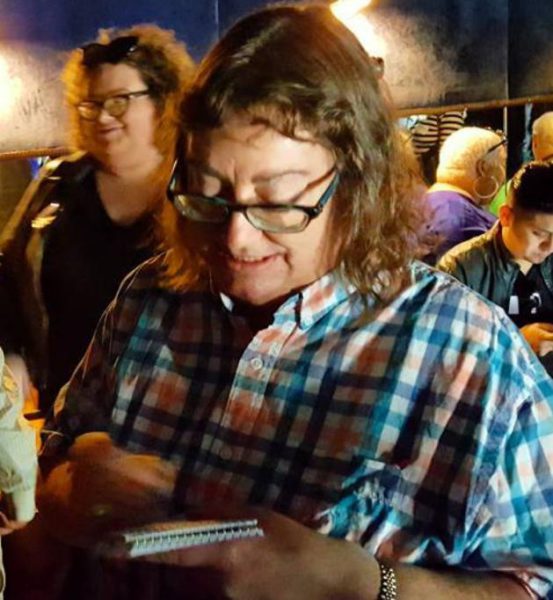
Cynthia Laird is the Editor-In-Chief and News Editor of the Bay Area Reporter. Laird is a long time journalist in the SF Bay Area having studied Government-Journalism at California State University, Sacramento. She and her wife live in Oakland.
*************************
The preceding article was previously published by The Bay Area Reporter and is republished by permission.
San Francisco
San Francisco Pride selects first trans person as executive director
“I want to preserve the legacy of the parade, while making sure there will be a thriving SF Pride event for future generations”
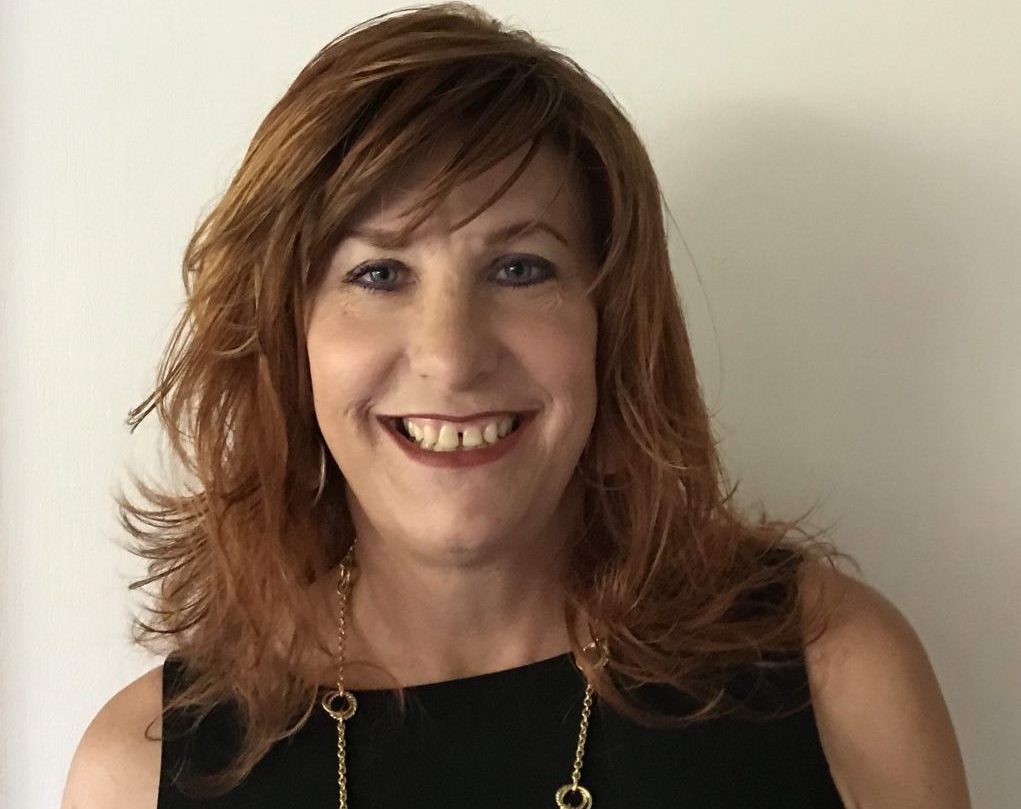
SAN FRANCISCO – The San Francisco Pride (SF Pride) board of directors have selected Suzanne Ford as executive director. Serving as interim executive director since February of 2022, Ford will continue to spearhead the funding and operations for one of the country’s premier Pride celebrations.
“I am excited for the first trans person to hold the position of Executive Director at San Francisco Pride,” said Nguyen Pham, President of San Francisco Pride. “We are privileged to have Suzanne at the helm of many key projects as she continues to advocate for trans visibility while championing diversity in the LGBTQ+ community.”
“In joining SF Pride, I found a great way to give back to the LGBTQ+ community and I found my family,” said Ford. “I want to preserve the legacy of the parade, while making sure there will be a thriving SF Pride event for future generations. As a tight-knit team, we are excited and humbled to host the second in-person SF Pride Parade and Celebration post pandemic.”
Following a rewarding sales career in the private sector, Ford served as a board member for approximately five years, acting as treasurer for the last three of those years. She co-founded SF Pride’s Pro-Am Golf Tournament Fundraiser, the world’s first and currently only PGA-endorsed LGBTQ+ golf event, which has raised more than $200,000 over the past four years.
Ford was honored with the Legacy Award, Celebrating Trans Joy, TDOV (Trans Day of Visibility) in March of 2022. In addition to numerous accolades for raising awareness of the work that is needed to save and honor trans lives, she has also been recognized for her professional career — when she was profiled as one of the “Women Breaking The Mold” in the packaging industry by Plastic News.
Ford continues to build upon her professional and community sustaining success. Just a few short months after assuming the role of interim executive director in 2022, she was instrumental in coordinating the first in-person SF Pride Parade and Celebration since 2019 — largely touted as a success.
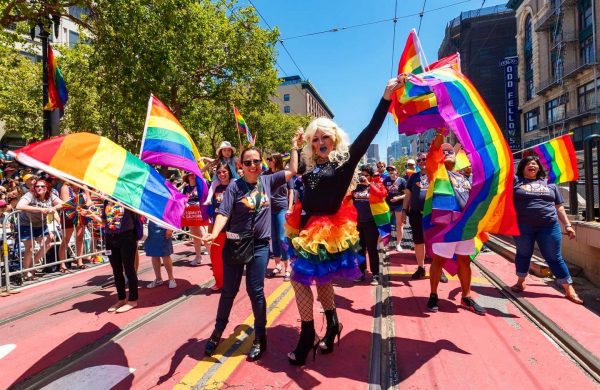
The San Francisco Pride Celebration Committee is a 501(c)3 non-profit organization founded to produce the SF Pride Celebration and Parade. The mission of the organization is to educate the world on LGBTQ+ issues, as well as commemorate the heritage, celebrate the culture and liberate the people of all LGBTQ+ communities.
A world leader in the Pride movement, SF Pride is also a grant-giving organization through its Community Partners Program. Since 1997, SF Pride has granted over $3 million dollars in proceeds to local non-profit LGBTQ+ organizations and organizations working on issues related to HIV/AIDS, cancer, homelessness, housing rights and animal welfare.
San Francisco
Wiener responds to bomb threat
“The email listed my home address, threatened to shoot up my Capitol office saying we will fucking kill you & called me a pedophile & groomer”
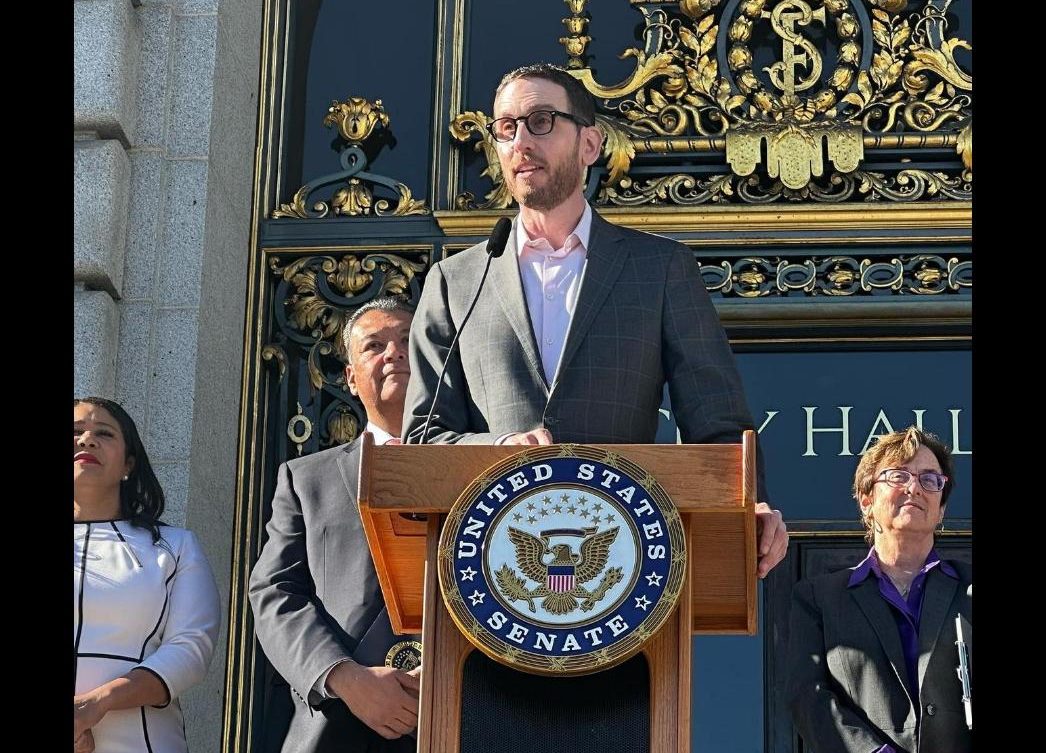
SAN FRANCISCO – California State Senator Scott Wiener (D), an openly gay lawmaker who represents San Francisco, in an emailed statement to the Blade responded to the bomb threat which had been emailed to the San Francisco Standard, a local news outlet, early Tuesday morning.
“Early this morning, I was informed by the San Francisco Standard and the police that someone had issued a bomb threat against me, listing my specific home address and also threatening to shoot up my Capitol office. The email said ‘we will fucking kill you’ and called me a pedophile and groomer.
“This latest wave of death threats against me relates to my work to end discrimination against LGBTQ people in the criminal justice system and my work to ensure the safety of transgender children and their families. Rep. Marjorie Taylor Greene and MAGA activist Charlie Kirk recently tweeted homophobic lies about me, falsely accusing me of supporting pedophiles and child ‘mutilation.’
“The extreme homophobic and transphobic rhetoric that has escalated on social media and right wing media outlets has real world impacts. It leads to harassment, stalking, threats, and violence against our community. People are dying as a result. Responsible political leaders on the right must call it out and stop tolerating it.
“I will always fight for the LGBTQ community — and for the community as a whole — and will never let these threats stop that work.”
A source with the SFPD confirmed the incident.
According to the Standard’s reporting on the incident:
The email was sent by a person using the name Zamina Tataro, the email said that they placed bombs at Wiener’s San Francisco home and threatened to shoot up his Sacramento office “in 20 minutes, I am willing to die.”
The subject line read “Scott Wiener will die today,” and the author called him a pedophile and accused him of grooming children.
A week ago on the heels of a Twitter attack by Georgia far-right extremist MAGA Republican U.S. Rep. Marjorie Taylor Greene, (R-GA), far-right extremist radio chat show host Charles J. Kirk, while loosely channeling an InfoWars host Alex Jones style-attack, went after Wiener implying that the veteran lawmaker endorses and supports child molestation.
Kirk, 29, is a co-founder of Turning Point USA, a conservative right-wing political group aimed at influencing college and university students and young people. Ironically, Kirk himself dropped out of Harper College, a junior community college near Chicago, without having completed any degree or certificate.
Kirk hosts a daily three-hour radio talk show, called The Charlie Kirk Show, on Salem Media which is known for owning conservative websites Townhall.com, RedState, Hot Air, and PJ Media, as well as Twitter aggregator Twitchy, calling itself a ” for-profit Christian broadcast corporation.”
He is also an avid supporter of impeached former president Donald Trump, consistently refers to himself as a MAGA Republican and has asserted that the concept of white privilege is a myth and a “racist lie.” He also has spread false information and conspiracy theories about COVID-19 on social media platforms, such as Twitter, in 2020.
Recently Kirk has been attacking the LGBTQ+ community on the subjects of trans youth and also following the lead of far-right Republican U.S. Rep. Marjorie Taylor Greene, (R-GA) in attacking Senator Wiener:
Kirk’s attack on the senator commenced with: “Thousands of pedophiles in California are going free after just a few months in jail, thanks to the state’s radically reduced penalties for child molestation. One reason so many of these predators are going free so early is California lawmaker Scott Wiener.”
Wiener responded on Twitter saying: “Not even 24 hours after MAGA grifter Charlie Kirk tweeted homophobic lies about me, I received this threat repeating one of his lies. But that was the point: Riling people up against me & other LGBTQ people. Words have consequences & Twitter is becoming a cesspool for this crap”
Not even 24 hours after MAGA grifter Charlie Kirk tweeted homophobic lies about me, I received this threat repeating one of his lies.
— Senator Scott Wiener (@Scott_Wiener) November 30, 2022
But that was the point: Riling people up against me & other LGBTQ people.
Words have consequences & Twitter is becoming a cesspool for this crap pic.twitter.com/gTn4tHkfg0
Equality California, the nation’s largest statewide LGBTQ+ civil rights organization, released the following statement from Executive Director Tony Hoang upon learning of yet another threat against Wiener:
“The bomb threat against Senator Wiener is another clear indication that the hateful rhetoric and lies from far-right, anti-LGBTQ+ politicians and pundits have dangerous consequences. They aren’t playing political games. This is not an issue with two sides. They’re inciting violence against Senator Wiener and the LGBTQ+ community, and their actions and words should be treated as such.
“Silence is not an option. Responsible leaders, regardless of political affiliation or ideology, must reject and condemn these hateful lies about Senator Wiener and LGBTQ+ people. To do any less is to be complicit in the violence they incite.”
Three months ago a Contra Costa County Superior Court jury convicted a 51-year-old San Ramon, Calif. man for threatening the life of Wiener and on state weapons charges.
Erik Triana was convicted guilty of threatening the life of Wiener, two counts of possessing assault weapons (an AR-15 rifle and a privately made 9mm pistol), two counts of manufacturing or assembling unregistered firearms (commonly known as ghost guns), and two counts of having a concealed firearm in a vehicle, according to the Contra Costa County District Attorney’s Office.
Both the San Francisco Police Department and California Highway Patrol investigated the threat, the SFPD’s public information officer Officer Kathryn Winters told the Blade.
Senator Wiener released a statement after the conviction:
“I’m deeply grateful to the Contra Costa County District Attorney’s Office, California Highway Patrol, and the court system for taking this death threat — and my personal safety — seriously, and for seeking accountability.”
“Death threats against public officials undermine democracy. A public official should make decisions based on what benefits the community, not based on whether a decision will get the official killed. Modern politics can be polarized and toxic, but we must never normalize or tolerate death threats,” the senator added.
Local Contra County journalist Tony Hicks, writing for Bay City News, reported:
Triana was arrested after he sent Wiener the threat through the senator’s “contact me” portal on his website that read: “Vax my kids without my permission and expect a visit from me and my rifle.”
According to the district attorney’s office, the San Ramon father of three signed his message “Amendment, Second” and listed his address as the Moscone Center in San Francisco. Triana was charged in April.
When Wiener testified on Sept. 6 he noted the threat was unlike others his office receives because of the reference to the late San Francisco Mayor George Moscone (who, along with Supervisor Harvey Milk, was shot and killed at San Francisco City Hall in 1978), the specific threat to use a gun, and that Triana lived in the Bay Area.
The threat was traced back to a work computer Triana used at his job in Pleasanton. When investigators executed the search warrant they found an unregistered AR-15 assault weapon with nine loaded magazines and an unserialized privately made 9-mm pistol referred to as ghost guns.
Police also seized another unserialized pistol in a backpack, along with two loaded 9mm magazines and two loaded AR-15 style magazines.
-
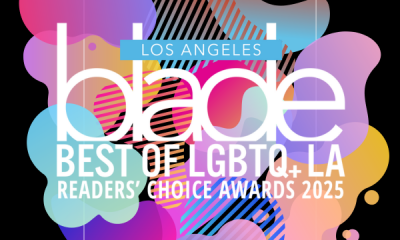
 Arts & Entertainment12 hours ago
Arts & Entertainment12 hours ago2025 Best of LGBTQ LA Finalist Voting
-

 Movies5 days ago
Movies5 days agoHeartfelt ‘Wedding Banquet’ remake a romcom worth seeing
-

 Brazil5 days ago
Brazil5 days agoUS lists transgender Brazilian congresswoman’s gender as ‘male’ on visa
-
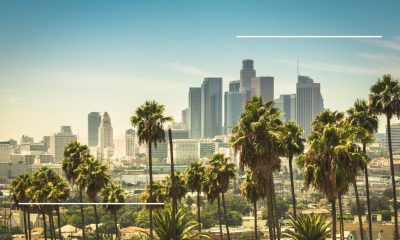
 opinions4 days ago
opinions4 days agoOver 36,000 Angelenos unite for ‘Fighting the Oligarchy’ rally
-

 Books3 days ago
Books3 days ago‘Pronoun Trouble’ reminds us that punctuation matters
-

 Congress4 days ago
Congress4 days agoEXCLUSIVE: Garcia demands answers on deportation of gay Venezuelan asylum seeker
-
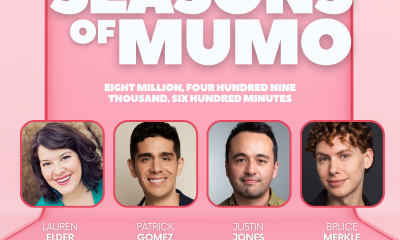
 Theater3 days ago
Theater3 days ago‘The Broadway Cage Match’ ready to rumble at WeHo’s Musical Mondays
-
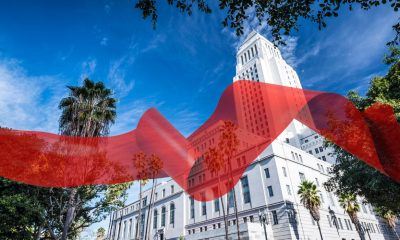
 Local15 hours ago
Local15 hours ago‘Housing Now!’: Advocates plan to wrap City Hall in red tape
-

 The Vatican19 hours ago
The Vatican19 hours agoPope Francis dies at 88
-

 Features4 days ago
Features4 days agoNew mayor Chelsea Byers, hopes to make WeHo a model city for others to follow

